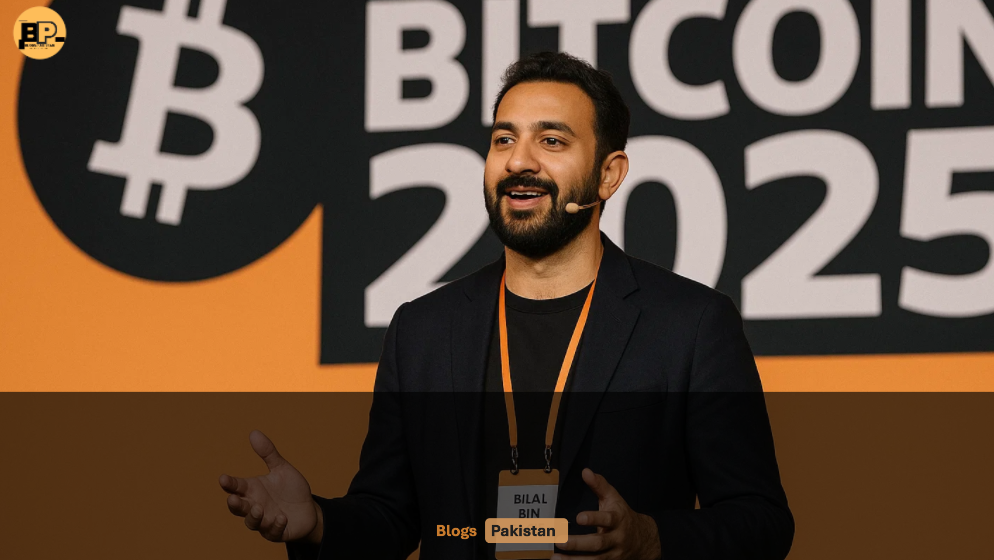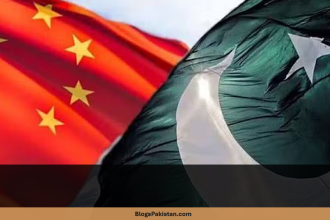A Bold Move: Pakistan Launches Government-Backed coin Reserve
In a groundbreaking announcement that is making waves across the global financial and tech sectors, Pakistan has launched its first government-backed Strategic Bitcoin Reserve. The announcement was made by Bilal Bin Saqib, Special Assistant to the Prime Minister on Blockchain and Cryptocurrency, during the Bitcoin 2025 conference in Las Vegas.
This major development positions Pakistan among the first nations to adopt Bitcoin as a strategic national asset, setting the stage for economic transformation and a forward-thinking digital strategy. The reserve, as clarified by officials, is not designed for speculative trading but will serve as a long-term sovereign asset — a symbol of financial modernization and a hedge against traditional economic instabilities.
This blog delves into what this means for Pakistan, Bitcoin’s global reputation, and the wider cryptocurrency landscape.
The Strategic Bitcoin Reserve: What Is It?
Pakistan’s National Bitcoin Wallet
According to Bilal Bin Saqib, the Bitcoin will be stored in a national Bitcoin wallet, secured and managed by authorized digital asset custodians. These reserves will not be sold or traded on exchanges; rather, they are meant to strengthen Pakistan’s digital financial foundation, much like how countries maintain reserves of gold or foreign currencies.
Why It Matters
This isn’t just a symbolic gesture. By declaring coin a strategic reserve, Pakistan is:
- Legitimizing cryptocurrency at a national level
- Positioning itself as a forward-looking digital economy
- Attracting interest from global blockchain investors and innovators
- Enhancing its financial sovereignty and transparency
The Bigger Picture: Beyond Bitcoin
2,000 Megawatts Allocated for Mining and AI
To further its digital ambitions, Pakistan has also allocated 2,000 megawatts (MW) of electricity for Bitcoin mining operations and Artificial Intelligence (AI) data centers. This move aims to monetize surplus electricity, attract foreign direct investment (FDI), and stimulate job creation in high-tech industries.
Finance Minister Senator Muhammad Aurangzeb described the initiative as a pivotal moment in Pakistan’s digital transformation, stating that it will help turn excess energy into a profitable and innovative national asset.
This is especially strategic for Pakistan, which has long faced challenges in energy management. Rather than letting surplus power go to waste, the government is channeling it into productive, revenue-generating tech ventures.
From Gold Reserves to Bitcoin Reserves: A New Paradigm?
A Hedge Against Economic Volatility
Countries traditionally rely on foreign reserves like the U.S. dollar, gold, or IMF reserves for economic stability. However, with rising concerns about inflation, currency devaluation, and geopolitical uncertainty, Bitcoin has emerged as a new-age hedge.
By establishing a Bitcoin reserve, Pakistan is diversifying its portfolio and betting on the future of decentralized finance (DeFi). It also signals a shift in how developing nations view digital assets — from risky and unstable to strategic and transformative.
Perception vs. Reality: Rebranding Pakistan & Bitcoin
During his keynote, Saqib highlighted that both Pakistan and Bitcoin suffer from international perception challenges. Misconceptions about political instability and economic risk have plagued both. This bold move, however, seeks to reframe Pakistan as a global tech hub.
“It’s time the world saw Pakistan for its talent, innovation, and digital potential, not just its challenges,” Saqib emphasized.
Pakistan’s educated, tech-savvy youth, combined with its growing startup ecosystem, is increasingly positioning the country as an emerging force in blockchain development, Web3 projects, and AI innovation.
Global Context: What Other Countries Are Doing
Bitcoin in National Reserves
While El Salvador made headlines in 2021 by becoming the first country to adopt Bitcoin as legal tender and later adding it to its national reserves, few others have taken such bold steps — until now. With Pakistan entering the space, we’re witnessing a second wave of national crypto adoption.
Other countries experimenting with or exploring the potential of digital assets in national finance include:
- Russia and Iran: Using crypto for cross-border transactions
- UAE: Encouraging blockchain startups and digital asset exchanges
- Nigeria and Ghana: Testing digital central bank currencies (CBDCs)
Pakistan’s Bitcoin reserve places it in an elite club of cryptocurrency-forward nations, likely inspiring other developing economies to explore similar strategies.
Potential Impact on the Pakistani Economy
Key Benefits Expected
- Increased Foreign Investment
Global crypto investors and blockchain companies are likely to view Pakistan as a viable, regulation-friendly hub. - Job Creation
Data centers and mining operations will generate thousands of jobs in IT, power, logistics, and cybersecurity sectors. - Export of Digital Services
With government support, Pakistan could become a leader in blockchain development, offering services to global markets. - Economic Resilience
Holding Bitcoin could help offset currency devaluation and act as a hedge against global economic shocks.
Challenges and Considerations
While the move is ambitious and inspiring, it doesn’t come without hurdles:
- Regulatory Framework Needed: Clear laws and compliance protocols must be set to avoid misuse and ensure transparency.
- Cybersecurity Risks: Bitcoin wallets at a national level need top-tier security infrastructure.
- International Relations: Given the mixed stance of financial institutions like the IMF on cryptocurrencies, Pakistan will need to balance its digital initiatives with traditional financial diplomacy.
The Road Ahead: A Blueprint for Future Growth
The introduction of a Strategic Bitcoin Reserve is just the beginning. To build a comprehensive digital economy, Pakistan will need to:
- Launch educational programs to train blockchain developers
- Set up blockchain R&D centers across major cities
- Encourage public-private partnerships in fintech and decentralized finance
- Establish international alliances with crypto-friendly nations and organizations
This initiative could also pave the way for tokenized government bonds, digital land registries, and transparent public finance systems powered by blockchain.
Final Thoughts: Bitcoin as the New Frontier
Pakistan’s decision to create a state-backed Bitcoin reserve reflects a visionary approach to global finance. In a world where digital assets are becoming integral to economic strategy, Pakistan is not only catching up — it’s aiming to lead.
This bold step might redefine the nation’s future, positioning it as a digital pioneer in South Asia. If the strategy succeeds, it could serve as a blueprint for other developing economies looking to embrace the digital revolution.
As global attention shifts toward decentralized finance, Pakistan’s entry into the Bitcoin era is not just a milestone — it’s a message to the world: the future is now, and Pakistan is ready.









